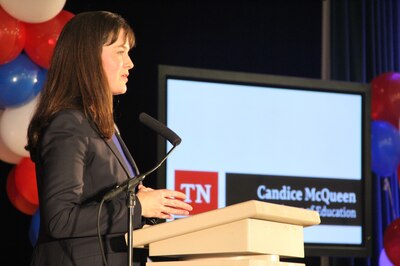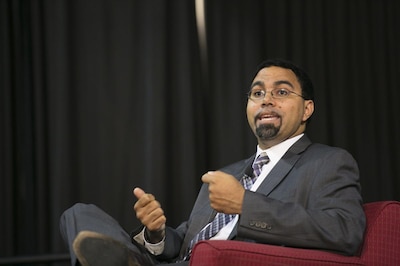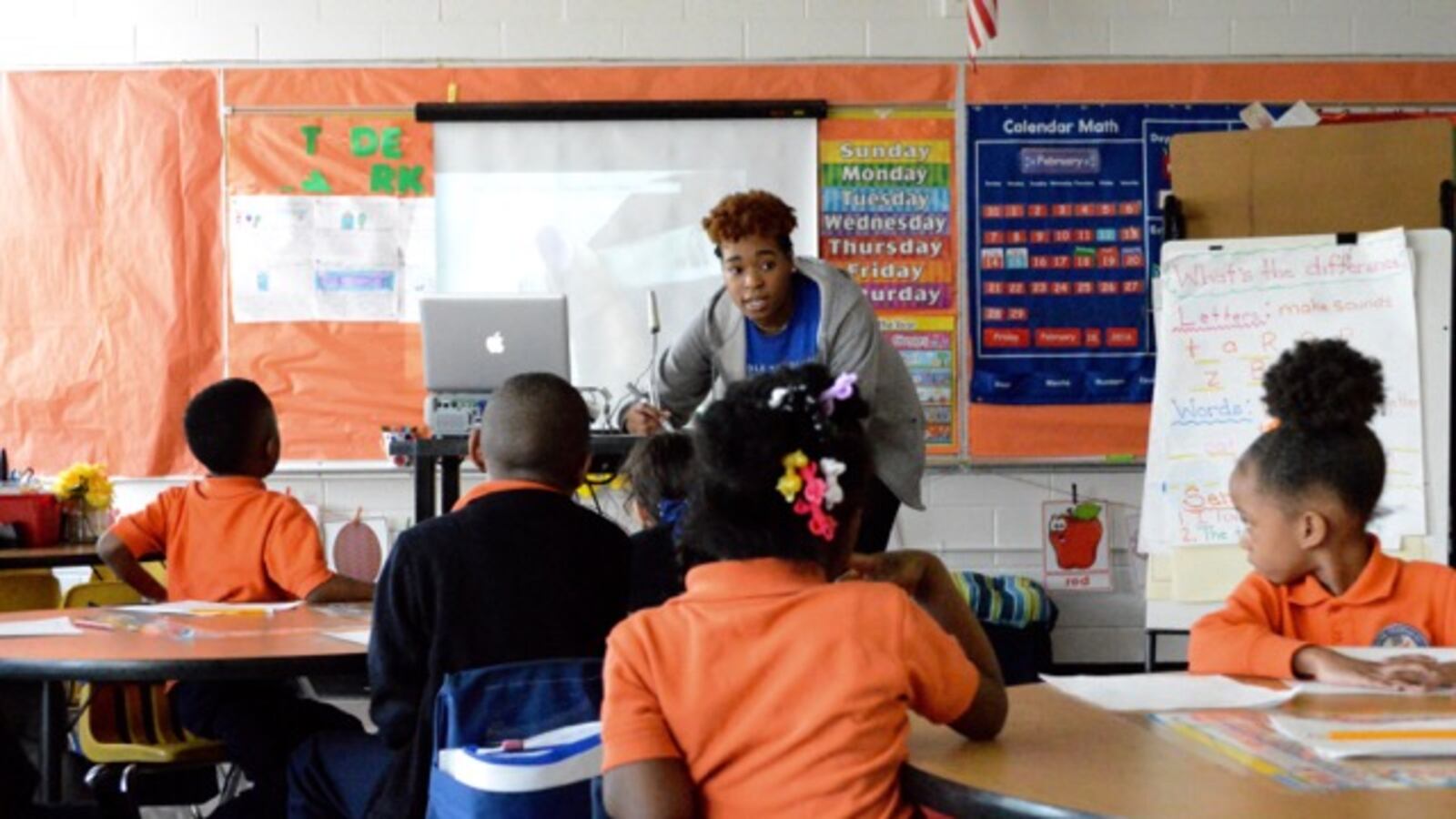Within an hour’s drive of Kingsport are seven teacher preparation programs that annually feed hundreds of candidates to the city’s K-12 schools.
And yet, Kingsport City Schools struggles every year to fill openings in its secondary schools.
“We will have … about 250 applicants for about 20 to 25 elementary positions, and we may have one to five applicants for our secondary positions,” says Lyle Ailshie, superintendent of the East Tennessee district.
Therein lies one of the teacher dilemmas facing school districts across Tennessee: getting the teachers needed for the right grades, as well as for the right subjects.
And with half of the state’s 65,000 teachers expected to leave or retire in the next decade, another challenge is hiring new teachers who are ready for the classroom. Some 40 percent of districts reported in 2015 that their new teachers weren’t prepared.
“We don’t sit here and say that we don’t have enough teachers; we actually do,” said Education Commissioner Candice McQueen. “The challenge is we don’t have enough effective teachers in areas we need them.”

McQueen announced plans Wednesday to strengthen Tennessee’s teacher pipeline and unveiled a report to help it get there. The report calls out the subjects with the greatest need for teachers — English as a second language, world languages and science — and highlights the variation of effectiveness across its new teacher workforce.
The commissioner also called on preparation programs and local districts to actively collaborate to achieve shared goals, similar to a partnership launched last year by school districts in Kingsport and Johnson City with East Tennessee State University.
To help with those conversations, the State Department of Education has begun releasing annual reports to Tennessee’s 40 preparation programs to provide data about the employment and effectiveness of their graduates.
McQueen announced a $200,000 state investment in grants to incentivize those programs to design strategies for filling high-demand licensure areas, improving educator preparation around literacy, and developing a diverse educator workforce.
The gaps in teachers for English language learners are generally found in the state’s urban districts, while rural school systems are most in need of world languages teachers.
Tennessee’s challenge with teacher diversity is also notable. Data from 2014 showed 122 districts without a single Hispanic teacher and 27 districts without a single African-American teacher. And training programs are struggling to fill that gap. Of candidates who completed Tennessee’s programs in 2016, only 14 percent identified themselves as non-white, compared with 36 percent of the state’s student population.
McQueen said the state will invest another $100,000 in grants for targeted districts innovating to hire a more diverse teacher workforce.
Former U.S. Secretary of Education John King, in Nashville Wednesday to help the state kick off of its initiative, said he was glad to see diversity being highlighted.

“Sometimes the issue of teacher diversity is framed as something that matters for students of color, but I actually think it matters immensely for all kids. White students need to see African-American teachers, Latino teachers, African-American principals, Latino principals,” said King, now president and CEO of The Education Trust, which seeks to close opportunity and achievement gaps in education.
King praised Tennessee for generating relevant teacher data, but cautioned that the information will lead to some hard conversations.
“There has to be a willingness on the part of the state and on the part of institutions to even consider closing programs if they chronically are either producing teachers who aren’t effective with students or are producing teachers who can’t find positions,” he said.
Tennessee education leaders took that thinking a step further.
“We need to get comfortable with being authentic with students who maybe do not need to be teachers, or maybe need to teach something else,” said Mike Krause, executive director of the Tennessee Higher Education Commission.
“All of those aren’t incredibly fun conversations; they are also incredibly necessary,” he added.

